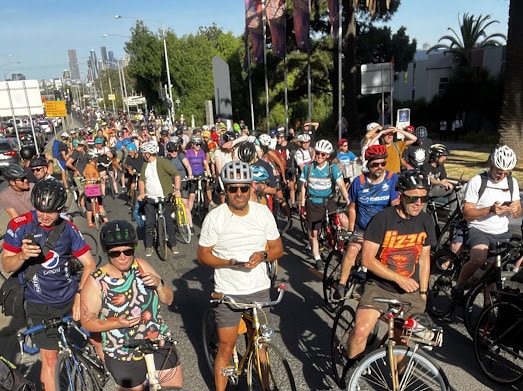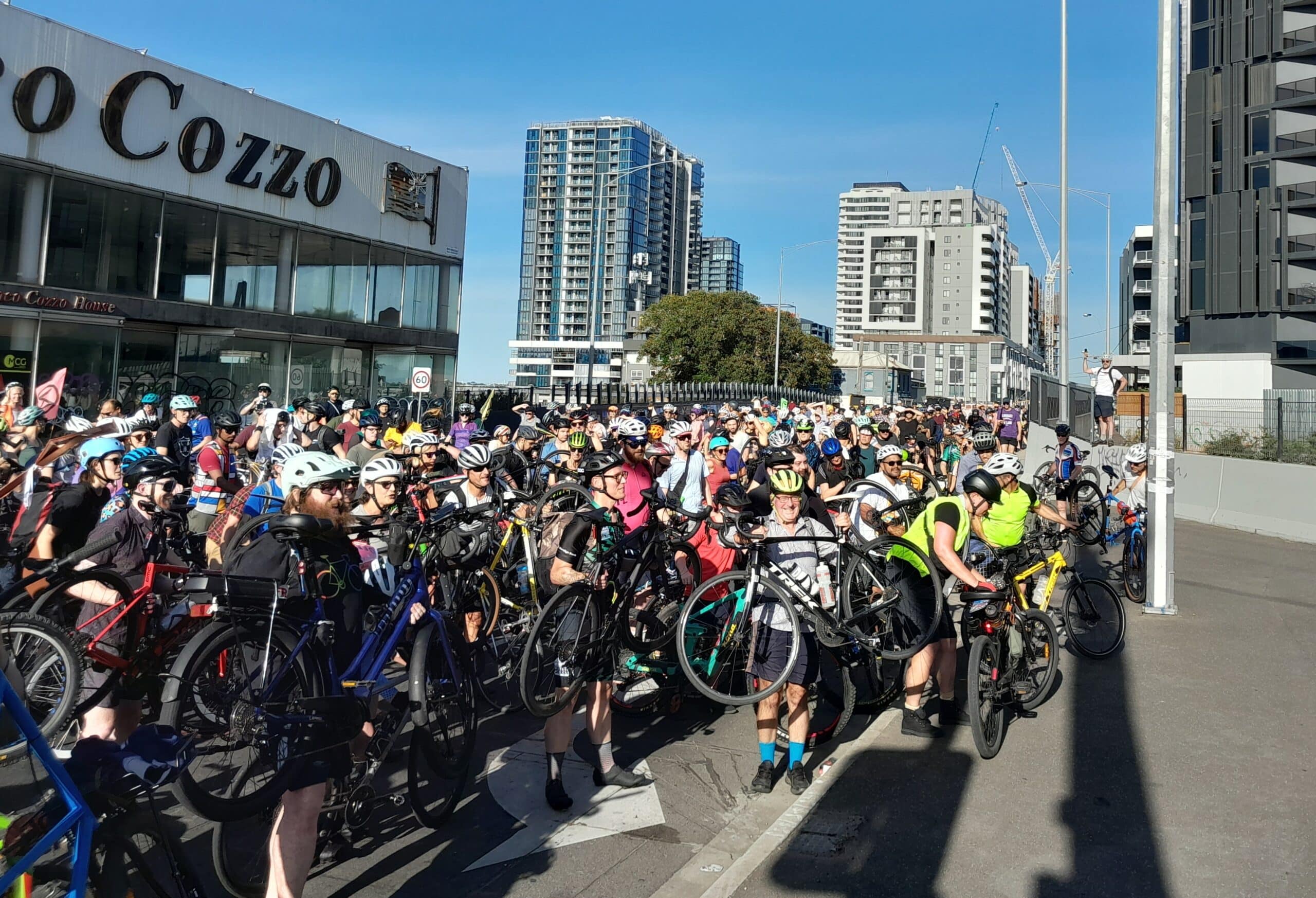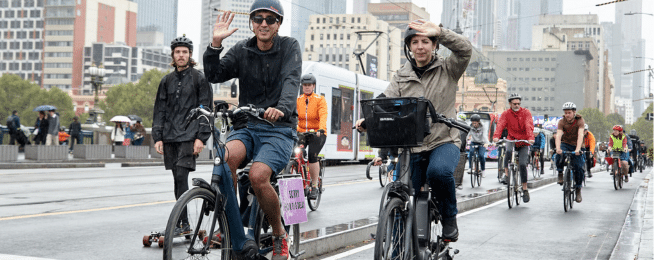Hundreds of people on bikes, scooters, e-bikes, cargo bikes, recumbent bikes and other modes of low and people-powered transport are expected to join the next Critical Mass event in Melbourne on Friday 30 June.
The global rolling protest movement will depart from Federation Square at 5pm and travel to Kerferd Road Pier in Albert Park to promote riding and showcase the safety issues that confront vulnerable road users.
The route has been chosen to highlight the discontinued walking and biking component of the $13 million Shrine to Sea project between St Kilda Road and Beaconsfield Parade, which was funded by the Victorian Government in 2018.
Last month, the Department of Energy, Environment and Climate Action (DEECA) announced that all bike riding and walking measures would be removed from the Shrine to Sea Master Plan.
City of Port Phillip resident and bike rider Julie Clutterbuck says the protest is a peaceful event, with a party atmosphere that includes music and decorations, and attracts people of all ages, on all types of bikes.
“We’re calling for the safe cycling and walking routes to be added back into the design for the Shrine to Sea project. This wide, beautiful boulevard could become a central family friendly tourist and recreational route, however plans have been shelved due to behind-the-scenes opposition.”
Year 11 student and bike rider Thomas Taylor, 16, says young people are particularly impacted by poor riding infrastructure as it reduces their options for healthy, inexpensive, accessible transport and independence.
“I am sick and tired of cyclists in this city being treated like second-class citizens, being told that ‘I must be insane’ for wanting to ride 3km to a basketball game or having to argue with friends’ parents to let me ride home from someone’s house once it’s dark,” Taylor told a Critical Mass event in Melbourne in May.
“More and more I am seeing my friends become dependent on Uber or the parental taxi service for short journeys because so often our streets and roads are completely inadequate to facilitate safe cycling.”
The Critical Mass protest movement began in San Francisco in 1992, when 60 bike riders peacefully blocked traffic to highlight the noise, aggression and pollution they faced daily on the roads.
Critical Mass rides are held in cities around the globe – from Miami to Kathmandu – on the last Friday of the month. They involve hundreds of protesters, often with police support.
The first event was held in Melbourne in November 1995, but the local movement lapsed in the mid-2000s. It returned with renewed optimism, buoyed by a post-COVID recognition of renewed transport possibilities, in November 2022, when it travelled along Sydney Road in Brunswick.

Critical Mass in Footscray
Critical Mass events in Melbourne are attended by community members and resident groups, including bicycle user groups, who advocate for active, sustainable transport solutions in their local areas.
So far this year, Critical Mass protests have been held in Footscray in February, Chapel Street in March and central Melbourne in May. Riding and micromobility safety concerns were highlighted on each route.

Critical Mass in Footscray
“Recent rides have been family friendly, and the pace is slow. To keep the group safely together, riders block intersections until the last rider is through – known as corking. Lately the event has been assisted by police who have helped to block intersections,” says Clutterbuck.
Other states in Australia have held Critical Mass events, the most notable in South Australia, which is known as Kidical Mass, an event with a family focus held on the weekend.
For more information go to: https://www.facebook.com/groups/CriticalMassMelbourne/
Become our friend
Find out more about Bicycle Network and support us in making it easier for people to ride bikes.


